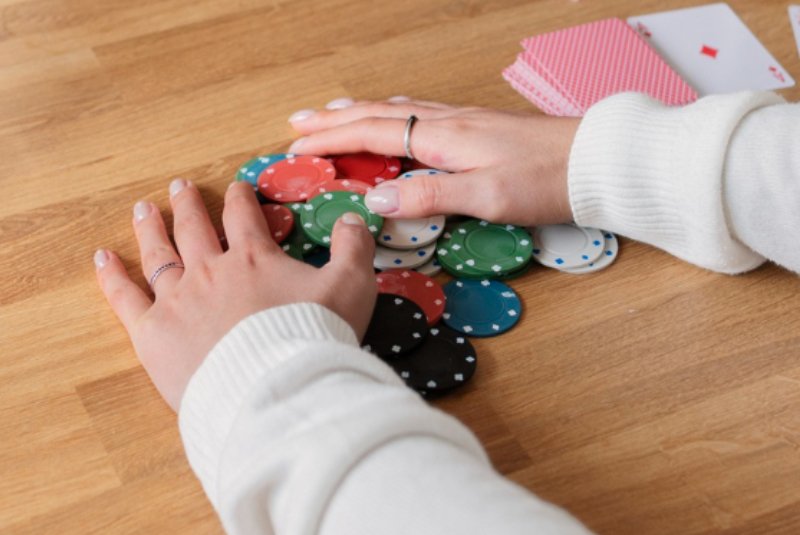How to get rid of betting addiction
Gambling addiction and problem gambling can deeply affect a person and their loved ones and have devastating effects on their lives. This article will focus on recognizing gambling addiction, identifying triggers, finding healthy alternatives, and offering advice on how to cope with the problem.
Article content
How to get rid of betting addiction
Gambling addiction and problem gambling can deeply affect a person and their loved ones and have devastating effects on their lives. This article will focus on recognizing gambling addiction, identifying triggers, finding healthy alternatives, and offering advice on how to cope with the problem.
What is gambling addiction?
Gambling addiction, often referred to as compulsive gambling or gambling addiction, is an impulsive disorder in which a person is unable to control their desire to gamble and gamble despite the negative consequences in their personal, professional or financial life.
Signs and symptoms of betting addiction
The main signs of gambling addiction are constant thoughts of gambling, the need to gamble more and more money to achieve excitement, attempts to hide the extent of one's gambling from others and continuing to gamble despite the obvious negative consequences.
A person addicted to gambling often tries to keep on gambling in order to get back the money he or she has lost by winning big, but this leads to even bigger losses. The gambler may also become increasingly reliant on others in his or her financial distress, often asking them for money and begging them to help with debts.
There is often a neglect of personal and professional commitments and the development of depression, anxiety or even suicidal thoughts, which is described in more detail in the stages of gambling.
How to stop gambling
Acknowledging the problem of gambling addiction
The first step to managing any addiction, including a betting addiction, is acknowledging the problem. Acknowledging a gambling addiction is essential to begin the road to recovery and without this step it is very difficult to help the addicted person and engage them in any form of gambling treatment.
Understanding the problem of gambling addiction
The key to overcoming addiction is to fully understand its nature and impact on life. It is important to realise that addiction is a chronic disease that requires long-term efforts and strategies to maintain abstinence.
The process of treating gambling addiction requires patience, empathy and a long-term commitment from both the addict and their loved ones. Support and love play a key role in the healing process.
Set goals
Set realistic and specific goals, which can be short-term, such as staying gambling-free for one week, or long-term, such as getting rid of the need to gamble altogether.
Each step forward is a significant achievement worth celebrating and acknowledging. In any case, goals should be aimed at gradually reducing the frequency and intensity of gambling activities.
Talk about your feelings and problems
Sharing your feelings and experiences can be healing. Talking openly with someone who is willing to listen without judgment and who can be understanding can bring relief and strengthen the resolve to continue treatment. Expressing your fears and concerns is a healthy and crucial step toward healing.
Open dialogue with a friend, family or therapist can provide needed support and feedback. For loved ones looking for ways to start a conversation about gambling addiction, the overview article How to Treat a Gambling Addict can help.
Identify triggers
Recognizing the situations that trigger the need to gamble and gamble is essential to successful recovery. Triggers can range from financial problems, to workplace or relationship stress , to social situations where gambling is a form of entertainment.
Boredom or loneliness can also be a trigger, where gambling can provide a form of entertainment or companionship that may be appealing to people who feel lonely or who are unsure of their free time.
Another strong trigger for gambling is a sense of euphoria and excitement, especially for those seeking an escape from routine or stress.
Identifying and planning how to avoid or manage these situations can greatly help prevent unwanted relapses into uncontrollable gambling behavior.
Understand your thought processes
Addicted gamblers often succumb to irrational beliefs or misconceptions that fuel their behaviour. For example, they may believe that they have the ability to influence the outcome of a game or that a big win will solve all their problems.
Understanding and reconstructing these thought patterns is essential to changing harmful and undesirable behaviours. Working with a therapist or in a support group can help to unravel these patterns and learn to address them more constructively.
Acknowledging lies and rebuilding trust
Lying is a common symptom of gambling addiction. It is often an attempt to hide the extent of the problem, either from oneself or from others. Openly admitting these lies can be painful, but it is necessary for true recovery and rebuilding trust and repairing relationships that have been damaged by gambling.
Avoiding high-risk situations
It is very important to avoid environments, situations and people that encourage gambling. It is necessary to protect ourselves by not approaching places or activities where our will not to gamble could be compromised.
This can include everything from physical environments, such as casinos, to virtual environments where gambling takes place in online casinos and other gaming applications.
One effective method of protecting yourself from the temptation to gamble in online casinos is to exclude yourself from gambling by voluntarily registering on the Register of Excluded Persons from Gambling.
Delaying temptation
When the urge to gamble arises, simply postponing the decision for a few hours can provide sufficient time for the impulsive desire to gamble to diminish and for the consequences of the decision to be considered. This 'window of time' allows for more rational considerations to be engaged and provides time to re-evaluate and possibly change the decision.
Have a strategy for possible returns
Recovery from any addiction is not a linear process and there may be moments of weakness and periods of unwanted relapse when an individual succumbs to their old habits. It is important to accept the possibility of a return to gambling and prepare to deal with it. For example, you can immediately turn to a support person or therapist to help you move forward.
Recognise and remind yourself of the benefits of a life without gambling
It's important to regularly remind yourself of the benefits of a gambling-free life, such as better financial stability, healthier relationships and greater personal peace of mind. All of these benefits strengthen your motivation to continue treatment and create a new realistic perspective on the negatives of gambling.
Look for healthy alternatives
Discovering new, healthier ways to spend your time can be crucial to long-term recovery from gambling addiction. Whether it's sports, artistic and creative activities, travel, volunteering or other hobbies, these activities can help keep your mind and hands meaningfully occupied.
New or rediscovered hobbies can provide longer-term satisfaction, distract from gambling and help overcome the need to gamble. We wrote more about activities that can help replace gambling in our article How to Help a Gambler.
Relax and take care of yourself
Maintaining good physical and mental fitness is essential for successful recovery from any addiction. Self-management techniques such as meditation, yoga, deep breathing or regular exercise can help keep a calm mind and resist the urge to gamble.
Think every day about what we have to be grateful for in life. When a person acknowledges and celebrates the positive aspects of their life, they can strengthen their mental resilience and improve their overall well-being.
Through daily gratitude, you can strengthen your positive perception of the world and alleviate the craving for instant gratification that gambling promises.
Seek support
Support from family, friends or group gather ings can be invaluable. Knowing that you are not alone in this and that there are people who understand your struggle and support your efforts can be powerfully motivating.
Involvement in group therapy or support groups can provide valuable social support and the opportunity to share experiences with others going through a similar recovery process. You can visit self-help groups for compulsive gamblers, such as Gamblers Anonymous, or take advantage of the online support on the website Acquire a Course.
What to do if you feel like gambling
Have a plan in place for when the urge to gamble strikes. You can contact a trusted friend to discuss this with beforehand, keep your mind occupied with physical activity, or use relaxation techniques to manage stress. You can also get quick help from the Gambling Helpline: 777 477 877, or the Gamblers Anonymous group chat.
How to help someone quit gambling
Helping someone overcome a betting addiction requires patience, understanding and support. It's important to offer support without judgement, provide information about available sources of help and be willing to listen without interrupting.
Resources
- How to Stop Gambling: 10 Tips | Gateway Foundation [online] [cited 2024 May 30]. Available from: https://www.gatewayfoundation.org/addiction-blog/how-to-stop-gambling/
- Gambling - how to regain control | Better Health Channel [online]. [cited 2024 May 30]. Available from: https: //www.betterhealth.vic.gov.au/health/healthyliving/gambling-how-to-change-your-habits
- Gambling Addiction and Problem Gambling | HelpGuide [online]. [cited 2024 May 30]. Available from: https: //www.helpguide.org/articles/addictions/gambling-addiction-and-problem-gambling.htm

